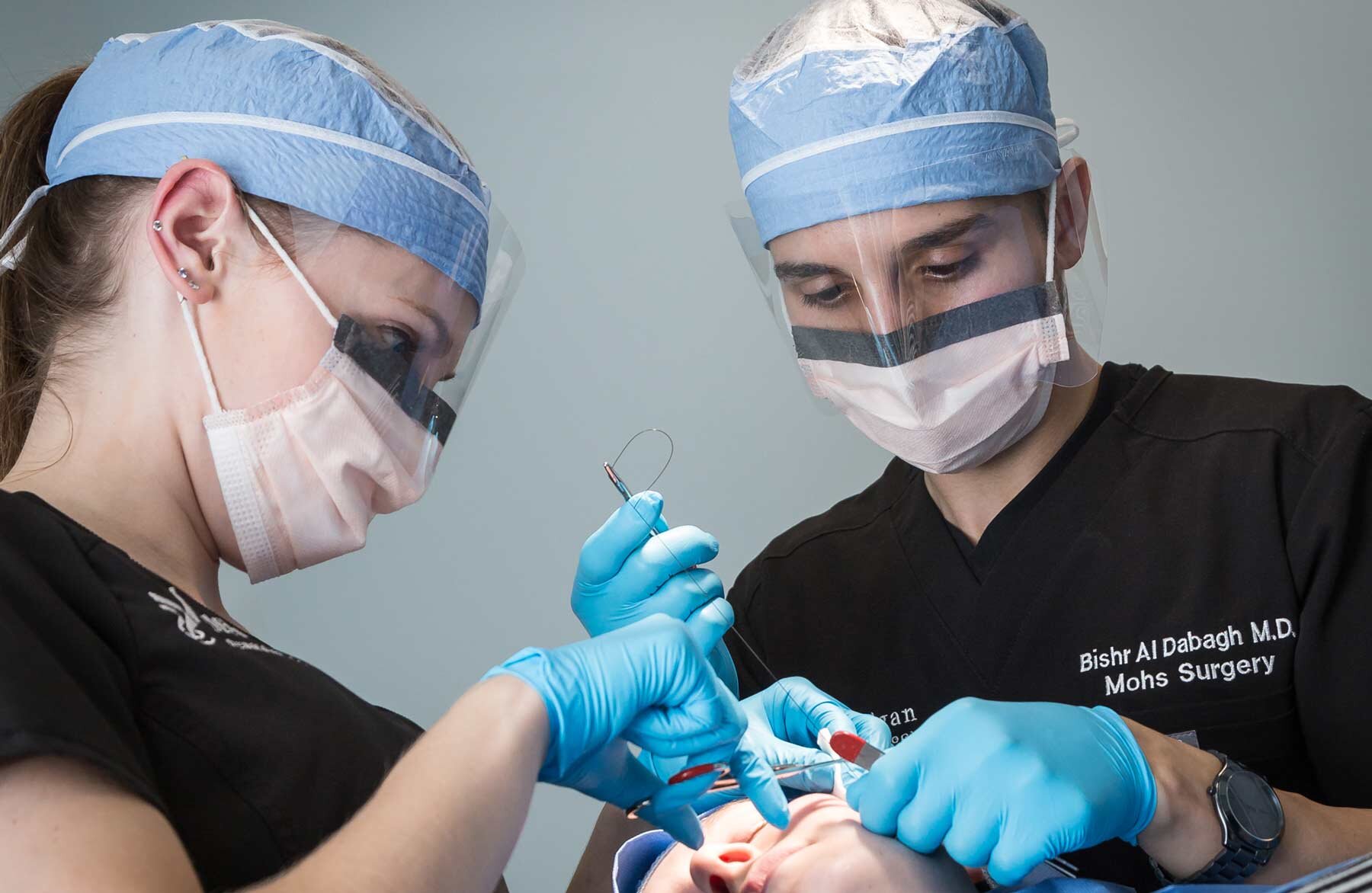
Basal Cell Carcinoma
Basal cell carcinoma (BCC) is a type of skin cancer that affects the basal cells, which are the cells in the lower layer of the skin. It is the most common type of skin cancer, and it is generally slow growing and non-invasive. BCC is most commonly found on areas of the skin that are exposed to the sun, such as the head, neck, and face.
BCC is caused by prolonged exposure to UV radiation, and it is more common in people with fair skin, light hair, and blue or green eyes. It is also more common in people who have a history of sunburns or who have a weakened immune system.
Symptoms of BCC may include a pearly or waxy bump on the skin that is pink, red, or skin-colored, as well as a sore that bleeds or does not heal. BCC may also appear as a flat, scaly area on the skin that is pink or red in color. In some cases, BCC may cause no symptoms at all.
If left untreated, BCC can grow and spread to other areas of the body, although this is rare. It is important to see a healthcare provider for evaluation and treatment if you notice any changes in your skin or if you have any concerns about BCC.
Treatment for BCC typically involves the removal of the cancerous cells. This may be done through surgery, radiation therapy, or topical treatment with creams or ointments. The specific treatment recommended will depend on the size, location, and severity of the BCC.
Surgery is the most common treatment for BCC and may include:
Excision: This involves cutting out the cancerous cells and a small margin of surrounding healthy tissue.
Mohs surgery: This is a specialized type of surgery that involves the removal of the cancerous cells in thin layers. Each layer is examined under a microscope to ensure that all of the cancerous cells have been removed. Mohs surgery is often used for larger or more aggressive BCCs or for BCCs that occur in areas with a high risk of scarring, such as the face.
Curettage and electrodessication: This involves scraping away the cancerous cells with a spoon-shaped instrument called a curette and destroying any remaining cancer cells with an electric current. This procedure is typically used for smaller or less aggressive BCCs.
Radiation therapy may be used to treat BCC that is difficult to surgically remove, such as BCC that occurs on the nose or ears, or in people who are not good candidates for surgery. Topical treatment with creams or ointments may be used to treat small or superficial BCCs.
In addition to treatment, there are several steps you can take to help reduce your risk of developing BCC:
Avoid prolonged sun exposure, especially between the hours of 10 a.m. and 4 p.m. when the sun is strongest
Wear protective clothing, such as a wide-brimmed hat and sunglasses, when you are outdoors
Use a broad-spectrum sunscreen with an SPF of 30 or higher on a daily basis, even on cloudy days
Avoid using tanning beds
Perform regular self-exams to check for any unusual or suspicious spots on your skin
By following these precautions and seeking treatment as needed, you can help to manage BCC and reduce your risk of developing this type of skin cancer. If you are concerned about BCC or have any other changes in your skin, it is important to see a healthcare provider for evaluation and treatment.
It is important to note that while BCC is generally non-invasive and slow growing, it can still be serious if left untreated. If you have been diagnosed with BCC, it is important to follow your healthcare provider's recommendations for treatment and follow-up care to ensure that the cancer does not recur.
In addition to seeking medical treatment, it is also important to protect your skin from further UV exposure to reduce your risk of developing additional BCCs or other types of skin cancer. This may involve seeking shade, wearing protective clothing, and using sunscreen on a daily basis.
By taking care of your skin and seeking medical treatment as needed, you can help to manage BCC and reduce your risk of developing this type of skin cancer. If you have any concerns about your skin or your risk of developing BCC, it is important to see a healthcare provider for evaluation and treatment.

